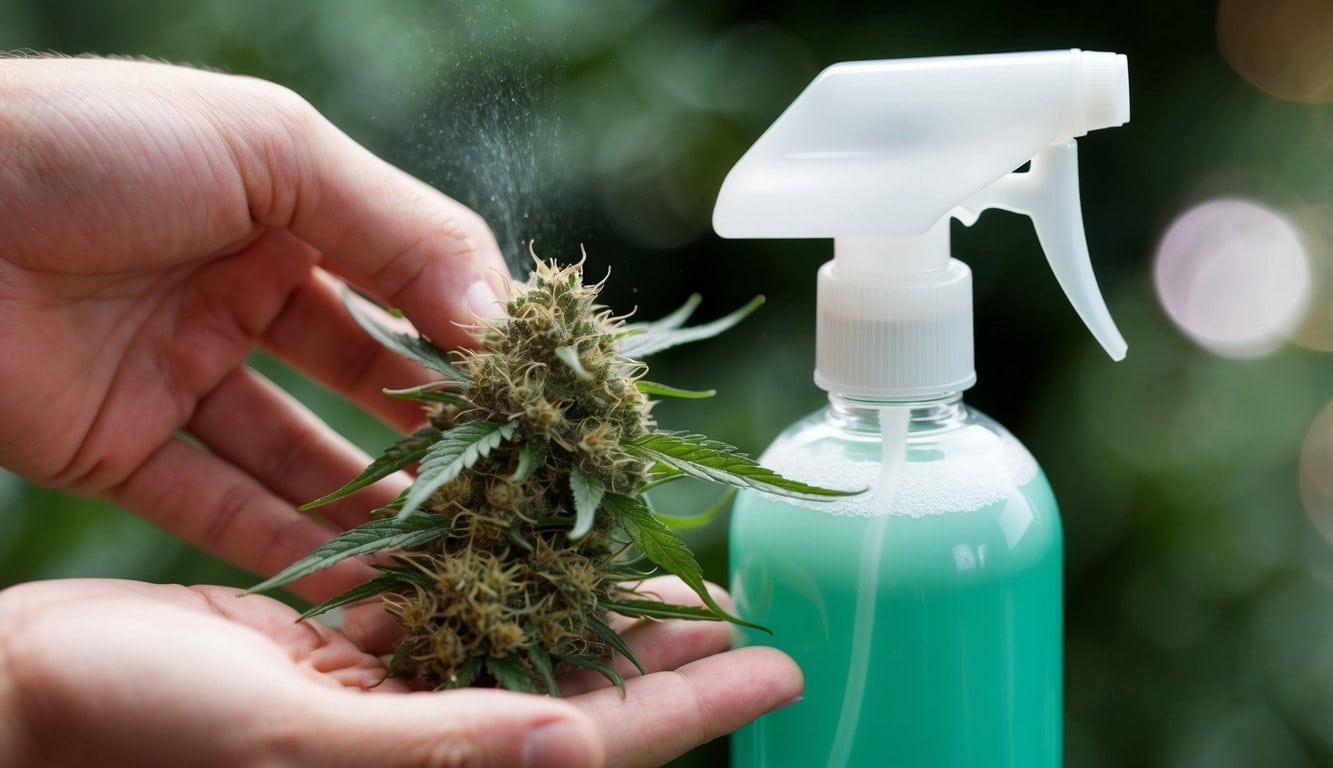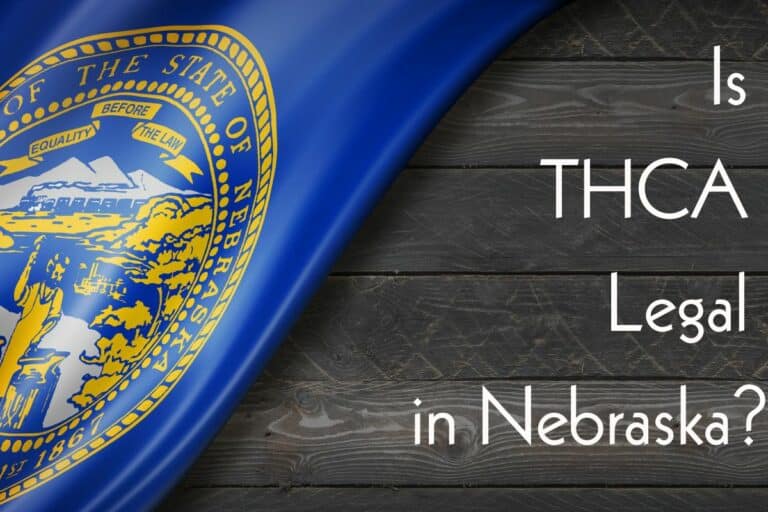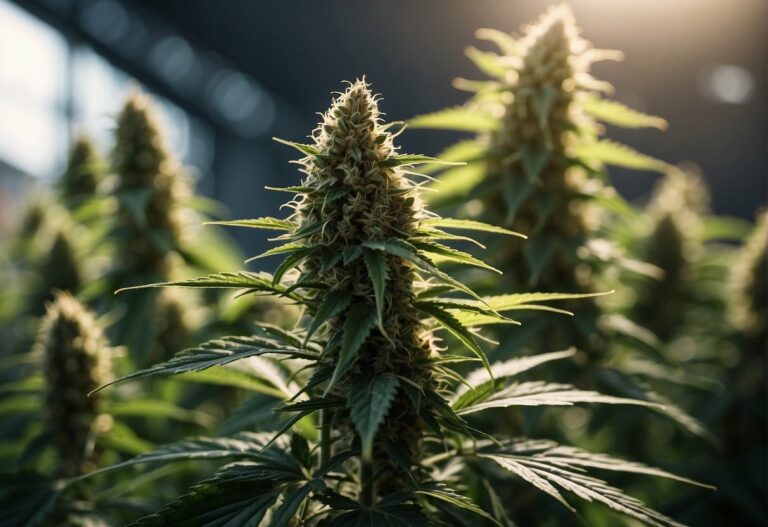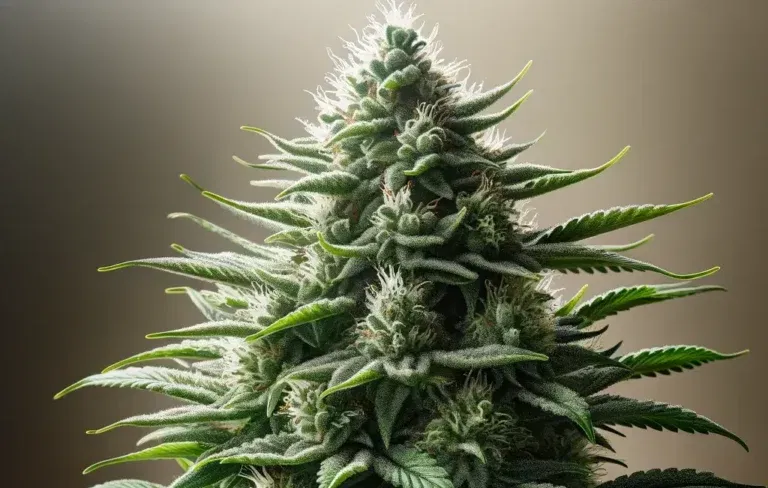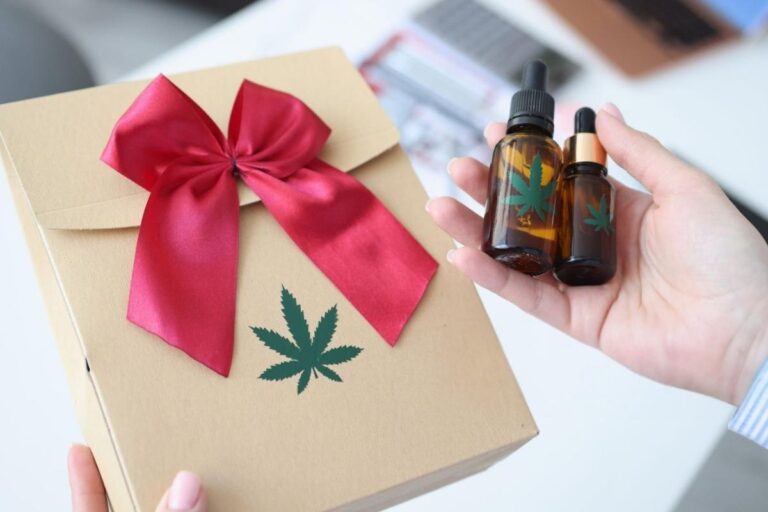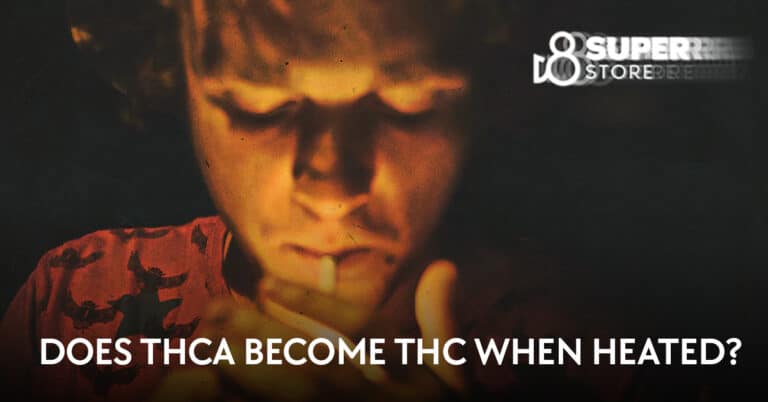Is THCa Flower Sprayed: Understanding Its Quality and Safety
Tetrahydrocannabinolic acid (THCa) flower comes from cannabis plants, primarily hemp, and is sought after for its potential benefits. Some THCa flowers are indeed sprayed with chemicals to accelerate growth and increase yield. This practice can involve both natural and synthetic pesticides to protect the plants from insects and diseases.
- Understanding THCa Flower
- Cultivation of THCa Flower
- Quality and Compliance
- THCa Flower Products
- Potential Risks and Considerations
- Decarboxylation and Conversion to THC
- User Experience and Effects
- Genetics and Strain Selection
- Harvesting and Post-Harvest Processing
- Environmental Impact and Ecosystem
- Frequently Asked Questions
Not all THCa flowers undergo this process. Some growers avoid spraying and use more natural methods. Brands like Bloomz have taken pride in producing THCa flower without resorting to chemical sprays. They focus on growing the plants with care to ensure high quality.
When purchasing THCa flower, it’s important to know about the cultivation practices used. This knowledge helps you make an informed choice about the products you consume. Whether the plant is sprayed or naturally grown can significantly affect its quality and safety.
Understanding THCa Flower

THCa flower is a non-psychoactive precursor to THC and has unique chemical characteristics. You will find out what THCa flower is and how its structure and effects differ from other cannabinoids.
Definition and Characteristics
THCa stands for tetrahydrocannabinolic acid. Unlike THC, which is known for its psychoactive effects, THCa is not psychoactive. This means it doesn’t produce the “high” associated with cannabis. THCa is found in raw cannabis plants and mostly turns into THC when heated through methods like smoking, vaping, or cooking.
One thing to note about THCa flower is its variety. Some flowers might be sprayed with chemicals to enhance growth or potency. However, many growers prefer natural cultivation methods to maintain the purity and safety of their products. Look for brands that provide transparency about their growing practices.
Chemical Structure and Effects
The chemical structure of THCa is different from THC. THCa has an extra carboxyl group that THC lacks. This difference keeps THCa from binding effectively to the CB1 receptors in your brain, leading to its non-psychoactive nature.
When THCa is heated, it undergoes decarboxylation, a process that removes the carboxyl group and transforms it into THC. This newly formed THC can then interact with your brain’s receptors, causing psychoactive effects. In its raw form, THCa is believed to have potential health benefits such as anti-inflammatory and neuroprotective properties, although more research is needed to fully understand these effects.
For consumers interested in the therapeutic aspects of cannabis without the high, THCa flower offers a promising option. Always check lab results and product information to ensure you are getting a trustworthy product.
Cultivation of THCa Flower

THCa flower is cultivated with both traditional and modern methods aimed at optimizing the plant’s growth and potency. Growers can use various techniques, including natural and organic methods, to ensure a high-quality product.
Cultivation Practices and Growing Conditions
Growers often use specific cultivation methods to produce high-quality THCa flowers. The plant may be grown indoors or outdoors, each having its unique benefits and challenges.
For indoor cultivation, controlled environments allow precise regulation of light, temperature, and humidity. This helps in achieving optimal growth rates and cannabinoid profiles. Special lamps, air conditioning, and humidifiers often support these conditions. Indoor setups can minimize the risk of pests and diseases but are usually more costly.
Outdoor cultivation benefits from natural sunlight and typically uses nutrient-rich soil. However, it is exposed to weather conditions and pests, requiring more natural pest control methods. Outdoor plants usually grow bigger and may have a more robust cannabinoid profile due to the full spectrum of sunlight.
Watering is crucial in both indoor and outdoor setups. Plants need balanced amounts of water and nutrients. Overwatering or underwatering can severely impact plant health and THC levels.
Organic Farming Methods
Organic farming focuses on using natural products and methods to cultivate THCa flowers. This method aims to enhance the plant’s natural properties without harmful chemicals. Organic growers prioritize soil health, using organic compost and fertilizers to enrich the soil. Healthy soil contributes to a better nutrient uptake and overall plant health.
Organic methods also use natural pest control like beneficial insects and rotating crops to minimize pest infestations. Control measures include using neem oil or garlic sprays instead of chemical pesticides.
Sustainable practices like crop rotation and soil regeneration reduce environmental impact. Organic farming not only benefits plant quality but also supports environmental sustainability, making it a preferable choice for many cultivators and consumers alike.
Quality and Compliance
For THCa flowers to meet quality and compliance standards, they must follow specific regulatory guidelines and undergo thorough testing. Understanding these processes ensures the product you choose is safe and meets legal requirements.
Regulatory Standards
THCa flowers must comply with the 2018 Farm Bill, which states that hemp plants must contain less than 0.3% THC by dry weight to be federally legal.
Growers are monitored by the DEA and other regulatory bodies to ensure adherence to these standards. Quality control is critical, so growers must follow strict guidelines when cultivating and processing THCa flowers.
Ensuring compliance with these standards helps maintain the integrity of the product and protects consumers.
Testing and Labeling
THCa flowers undergo rigorous testing to verify their potency, purity, and safety.
Testing labs check for cannabinoid content, contaminants like pesticides, and other harmful substances. Accurate labels are crucial; they should list THCa percentages, batch numbers, and testing dates. This transparency helps you make informed decisions about what you are purchasing.
Product labels that meet regulatory standards help maintain trust in the marketplace and ensure consumer safety.
THCa Flower Products

THCa flower products come in various forms, each offering unique characteristics and benefits. They are highly valued for their non-intoxicating effects and high quality.
Types of Products
THCa Buds: THCa flower is available as whole buds, which are rich in THCa and come from high-THCa strains. These buds preserve the plant’s original flavors and benefits.
Pre-Rolls: Pre-rolled joints made from THCa flower are convenient for those who prefer smoking. They’re easy to use and save you the effort of rolling.
High-THCa Flower: Some growers produce premium high-THCa flower, aiming for maximum potency. This type of flower is typically more expensive due to its higher THCa content.
CBD Blends: Some products combine THCa flower with CBD for balanced effects. These blends provide a broader range of benefits due to the presence of both cannabinoids.
Non-intoxicating Effects
Non-psychoactive: THCa itself is non-intoxicating. It offers potential therapeutic benefits without causing a high, making it an appealing option for users seeking relief without intoxication.
Health Benefits: Consuming THCa flower may offer various health benefits. These include anti-inflammatory and neuroprotective effects, which can be helpful for conditions like arthritis and neurodegenerative diseases.
Consumption Methods: The flower can be smoked or vaped to experience its benefits. While smoking may give a faster onset, vaping could offer a cleaner alternative.
Flavor and Aroma: THCa flower retains the flavors and aromas of the original cannabis plant. This adds to the overall experience, making it enjoyable for those who value natural flavor profiles.
Potential Risks and Considerations
It’s important to be aware of the potential health and safety risks associated with consuming THCa flower. These risks mainly stem from how the flower is cultivated, including the use of chemicals and verifying authenticity.
The Context of Spraying
Some THCa flowers are sprayed with pesticides to protect against insects and diseases. This can include both natural and synthetic chemicals. While spraying helps in boosting plant yield, it raises safety concerns.
Harmful chemicals may leave residues on the flower, posing health risks when consumed. In some cases, farms will use specialized equipment for large-scale spraying, while smaller operations may rely on manual methods. Knowing if your THCa flower has been sprayed is crucial for ensuring its safety.
Identifying Authenticity
When buying THCa flower, ensuring its authenticity is key. Authentic THCa flower is cultivated to naturally produce high levels of THCa without the need for harmful chemicals or synthetic cannabinoids.
Brands like Bloomz highlight their commitment to producing chemical-free THCa flowers. They offer transparency in their cultivation processes, avoiding the practice of spraying. Always check for third-party lab results to confirm purity and the absence of contaminants. This way, you can be confident you’re getting an authentic, safe product.
Decarboxylation and Conversion to THC

To enjoy the psychoactive effects of THCa, you must convert it to THC through a process called decarboxylation. This involves applying heat to THCa, changing its chemical structure into delta-9 THC.
Temperature and Time
- Optimal Temperature: 220°F (104°C) to 250°F (121°C)
- Time Range: 30 to 45 minutes
If the temperature is too low, the process won’t be complete, leaving some THCa unconverted. If too high, you risk burning the cannabis and degrading the THC.
Steps for Decarboxylation
- Preheat your oven to 220°F (104°C).
- Break the THCa flower into small pieces and spread them on a baking sheet.
- Bake for 30-45 minutes until the flower turns light brown and fragrant.
- Remove the baking sheet from the oven and let it cool.
Tips for Better Decarboxylation
- Use parchment paper or an aluminum foil pan to avoid sticking.
- Ensure even spread to avoid uneven heating.
- Allow the decarboxylated flower to cool before using it in any products.
By following these steps, you can effectively decarboxylate THCa, converting it to THC and ensuring that you get the desired psychoactive effects.
User Experience and Effects

When using THCa flower, users often report feeling a range of effects due to its high potency. THCa itself isn’t psychoactive, but it can convert to THC when heated. This conversion can lead to a strong high.
Many users claim to experience enhanced well-being and relaxation. Different strains may offer varied effects, so your experience can depend on the specific strain you choose.
Some effects you might notice include:
- Increased relaxation
- Enhanced mood
- Pain relief
- Reduced anxiety
If you are subject to drug tests, be aware that using THCa flower could result in a positive test for THC. This is due to the potential conversion of THCa to THC in your body or during smoking.
Some common strains known for their high potency include Blue Dream, OG Kush, and Pineapple Express.
In terms of user experience, you may find the following helpful:
- Ease of Use: Both novice and experienced users can enjoy THCa flower.
- Versatility: Can be used in various forms like smoking or vaping.
Always consult with a healthcare professional to see if THCa is right for you and be aware of the legal status in your area.
Genetics and Strain Selection

Genetics and strain selection play a critical role in growing THCa flower. Breeders focus on the cannabis plant’s genetic potential to naturally produce higher THCa levels. By selecting specific cannabis seeds or hemp seeds, breeders can enhance certain traits.
Traits breeders focus on:
- THCa content
- Growth patterns
- Resilience
- Terpene profile
You might find that plants with high THCa levels also have variations in other cannabinoids like CBG and Delta 8. Breeders use selective breeding practices to prioritize plants with desirable genetics. This involves a meticulous selection process.
In this process, breeders look at many factors, such as:
- Yield: How much usable product a plant produces
- Cannabinoid content: Balance of THCa, THC, and other cannabinoids
- Plant health: Resistance to diseases and pests
By selecting strains with high THCa content, breeders ensure that you receive raw cannabis or raw hemp plants that meet specific quality standards. Some strains may be bred to produce higher yields, while others focus on unique terpene profiles or higher resilience to environmental stressors.
Certain strains are well-known for their natural THCa levels and overall quality. Identifying these strains and focusing on their genetic traits ensures better growth and potency for the final product.
Harvesting and Post-Harvest Processing

Harvesting THCa flowers requires careful timing and attention. You need to keep an eye on the trichomes, which are tiny, shiny structures on the buds. When they turn from clear to milky or amber, it’s time to harvest.
Once harvested, drying the flowers is the next crucial step. This process can take 7 to 10 days. Rushing the drying phase can degrade the flower’s quality and reduce the cannabinoid content. To maintain high THCa levels, avoid exposing the flowers to heat, light, or oxygen.
Producers often use manual misters or specialized equipment to spray solutions on the flowers. Spraying ensures an even distribution of chemicals or nutrients. Healthy flowers are arranged to maximize exposure, while damaged or dead ones are removed.
Proper post-harvest care involves storing the flowers in a controlled environment. This helps prevent the conversion of THCa to THC. Keeping the flowers cool, dark, and dry is essential to preserve their potency.
Considerations for drying THCa flowers:
- Temperature: Keep it around 60-70°F.
- Humidity: Maintain at 50-60%.
- Airflow: Ensure good ventilation to prevent mold.
These production methods help ensure you get quality THCa flowers with high potency.
Environmental Impact and Ecosystem

THCa flower cultivation can have a significant impact on the environment and ecosystem. The use of chemicals and sprays is common to boost growth and yield, but this practice can harm soil, water, and wildlife.
When chemicals run off from cannabis farms, they can pollute nearby water sources. This contamination affects not only the soil but also local ecosystems. Wildlife, including insects and animals, can be harmed by these chemicals.
Organic cultivation of THCa flowers offers an alternative to chemical sprays. Non-sprayed flowers are grown using natural methods that support a healthier environment. This approach promotes sustainable plant growth and protects ecosystems from harmful chemicals.
By choosing organically grown THCa flowers, you support practices that benefit the environment. Organic farming helps maintain soil quality and encourages biodiversity. The absence of chemical sprays also means that insects and other wildlife are less likely to be harmed.
Environmental Benefits of Organic THCa Flower:
- Protects soil quality
- Reduces water pollution
- Supports biodiversity
- Minimizes harm to insects and wildlife
Some brands are committed to using organic methods to cultivate THCa flowers, ensuring that their products do not harm the environment. These practices help create a more sustainable and eco-friendly cannabis industry.
Choosing non-sprayed THCa flowers can have a substantial positive impact on the environment and local ecosystems. It is a step towards a more sustainable approach to cannabis cultivation.
Frequently Asked Questions

THCa flower raises many questions about its production, safety, and use. Here are answers to some common questions.
How can consumers ensure the safety of smoking THCa flower?
To ensure safety, purchase THCa flower from reputable sources. Look for lab-tested products, which provide details about the presence of pesticides and other chemicals. Organic labels can also indicate safer products.
What methods are used to identify if a THCa flower has been treated with additives?
Lab testing is crucial in identifying added chemicals in THCa flower. Analytical tests focus on detecting pesticides, growth enhancers, and other residues. Consumers should ask for a Certificate of Analysis (COA) from sellers.
What are the production processes involved in creating THCa flower?
Creating THCa flower involves growing cannabis plants, harvesting them, and then processing. Some producers may use chemicals to protect the crops or boost growth. Flowers are then dried and cured before reaching consumers.
Does smoking THCa flower have any associated health risks?
Smoking THCa flower can pose health risks if it contains harmful chemicals. Inhaling pesticides and other substances can be dangerous. It’s essential to choose products that have been shown to be free from these contaminants.
Can the presence of chemicals be detected in THCa flower?
Yes, chemical presence can be detected through lab testing. Specialized equipment tests for the presence of various substances. Information from these tests can help you make informed decisions about the products you consume.
What is the difference between naturally derived and synthetically enhanced THCa products?
Naturally derived THCa products come from cannabis plants grown without synthetic chemicals. Meanwhile, synthetically enhanced products involve adding chemicals to boost growth or yield. People often prefer natural products for their purity and safety.

